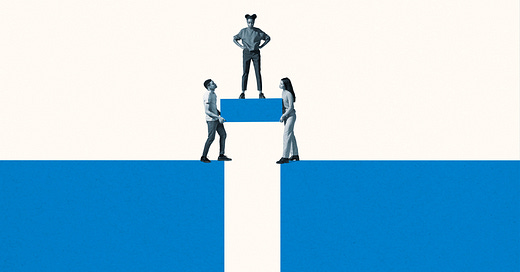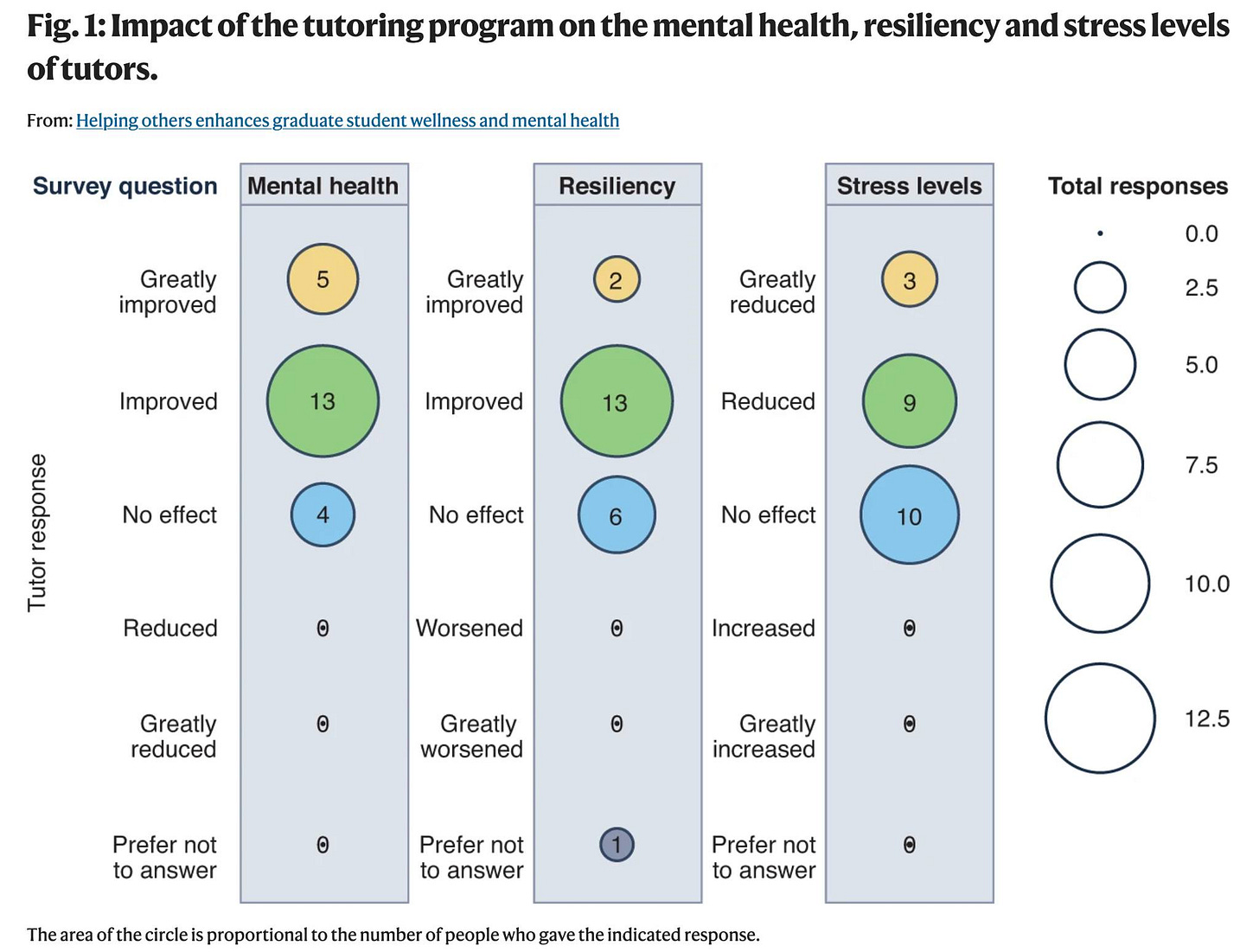Self-Help Is Important. Other-Help Is Too.
When taken too far, self-help can be self-sabotaging, especially when it cuts us off from others. Other-help is what reliably gives us an enduring boost.
One spring a patient named Margot came to my office feeling despondent. At the beginning of the year, she attended a seminar on the importance of self-care, which was titled, "Make This Year All About You." The two-hour workshop emphasized how prioritizing oneself was a must to achieve happiness. Margot was instructed to put herself at the top of her to-do list and begin each morning by looking in the mirror and asking, "What do I need today?" She was told to make regular "dates" with herself and treat herself with a slice of her favorite cake or a manicure. At the end of the seminar, the attendees signed a contract pledging to give more love, kindness, and attention to themselves.
When Margot returned home, she withdrew from her book club so she could read the recommended self-help books. (Plus, she told me, because the club didn't always choose books she liked, she felt further justified in her decision.) The signed pledge gave Margot the license to decline invitations that weren't convenient or to her liking. She decided not to attend a friend's birthday dinner because it wasn't being held at a vegan restaurant. When her sister came to town for a visit, Margot barely made time to see her.
The upside of Margot's newly adopted self-care regimen was that she was getting lots of sleep, eating a healthy diet, reading a self-help book a week, meeting with a life coach every two weeks, meditating thirty minutes a day, and getting plenty of exercise. For her vacation, she canceled a visit to see her grandmother and opted instead for a silent retreat. Yet in spite of her efforts to give back to herself, Margot said that her efforts hadn't provided the boost she had hoped for. If anything, she told me in almost a whisper, she felt worse.
As I write about in my book, Everyday Vitality, when taken too far, self-help can be self-sabotaging, especially when it greenlights self-focus and cuts us off from others. If self-help isn't the answer, what actually helps? While it may sound counterintuitive, other-help is what reliably gives us an enduring boost.
I told Margot about an experiment published in Emotion, in which volunteers were asked to choose one of three acts to perform each week for a month: to show kindness to others, to humanity, or to themselves. The groups that performed acts of kindness towards others or humanity experienced a greater boost than those who focused on themselves. A massage is relaxing and enjoyable in the moment, but the positive feeling fades quickly. When acts of kindness are other-oriented, not self-oriented, people feel better for longer. The study concluded that when "people do nice things for others, they may feel greater joy, contentment, and love, which in turn promote greater overall well-being and improve social relationships." In short, a cascade of uplifts follows other-oriented actions—and they linger.
According to research published in Science, people also tend to feel better when they buy a gift for someone else than they do when they buy it for themselves. Plus, the happiness derived from giving things does not wear off in the same way as purchasing something for oneself does. Having can get boring, but the "warm glow" of doing something for someone sustained itself over the course of the study. A study published in Motivation and Emotion found that altruistic behavior can even dial down anxiety. People who are socially anxious were able to override feelings of insecurity and feel more confident after actively leading a helping hand, such as by mowing a neighbor's lawn or doing a favor for a roommate. During the pandemic, graduate students who tutored high-school students reported improved mental health and reduced stress according to a study in Nature.
To be clear, I am not promoting self-neglect or martyrdom. Nor am I recommending a life that rivals that of a doormat. It is important to take care of yourself. All I am saying is that too much self-focus can become an excuse to shut ourselves away from the rest of the world. There is nothing wrong with doing good things for yourself, but taken to the extreme, it can turn into a justification for self-absorption.






